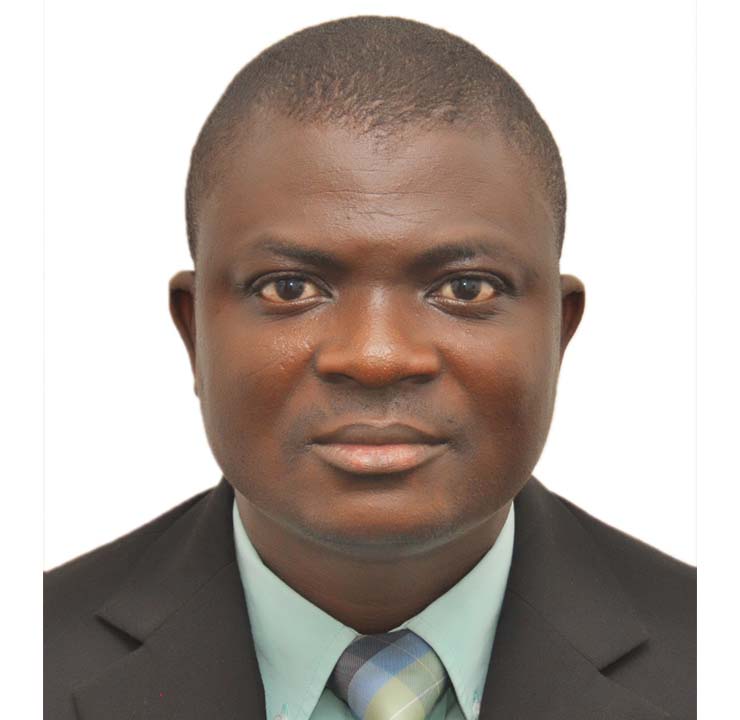Department of Pathology

Dr. Mustapha A. AJANI
Ag. Departmental Head
Department of Pathology
The Department of Pathology, University College Hospital, Ibadan was created by the University authorities in 1961.
The department was founded on its present site in the hospital complex. The pioneer Head of Department was Professor B.G.T. Elmes. Professor G.M. Edington, co-author of 'Pathology in the Tropics' succeeded him. Subsequent Heads include Professors A.O. Williams, A.A. Abioye, T.A Junaid, P.U. Aghadiuno, J.O. Thomas, J.O. Ogunbiyi, E.E.U. Akang and O. A. Oluwasola. The Department is an amalgam of professional (histopathologists, laboratory scientists and nursing officer) and ancillary staff (technical and administrative).
EVOLUTION
The department has largely remained unchanged in site and structure but has increased its functions and facilities over the years. The department started as a pure morphology based unit and later added cytology facilities and also at present immunohistochemical services are offered in the department (one of the few laboratories offering such services in the country). The department also has cryostat machines and offers frozen section services. In collaboration with the Institute of Advanced Medical Research and Training the department has started to embark on molecular pathology services which will further add to the arsenal of facilities in making diagnosis and will position the department on the cutting edge of research. At present the department has eight lecturers and is involved in the training of students for the MBBS degree, postgraduate resident doctors for specialist training and other related paramedical courses.
The department has been responsible for the training of many of the faculty members of other sister pathology departments in the country and still continues to fulfil this role through the production of museum specimens and histology slides which help new medical schools to start off. The department also has a well-stocked museum that is very useful in the training of medical students and postgraduate doctors.
In 1960 the department started the first cancer registry in the country through the efforts of Professor Edington who collaborated with other stakeholders from the University of Ibadan, university College Hospital and School of Hygiene to get the unit started. The registry is still at present the only WHO recognised population based cancer registry in the country. The registry collects data of malignancies from the teaching hospital, private hospitals and other hospital within the city of Ibadan its environs.
Through the data collected numerous publications on the changing epidemiology of cancers and some other disease conditions in Nigeria have been done.
LANDMARKS
The academic staff of the departmenthas over the years been involved in numerous national and international collaborative studies and have been recipients of many awards.
These include:
Professor JO Ogunbiyi:
1. Postdoctoral Research Training Fellowship of the International Agency for Research on cancer (I.A.R.C.), World Health Organization, Lyon, France.
2. Visiting Assistant Professor, Eccles Institute of Human Genetics, University of Utah, Salt Lake City, UT 84112 under a grant number NHLBI/06-12-NG-09 of the National Institute of Health, Bethesda,
Maryland, U.S.A.
Professor EE Akang:
1. Ibadan-Indianapolis Dementia Research project- PIs Prof. B. Osuntokun and Prof. A. Ogunniyi; participated from 1992-2000
2. Non-Hodgkin's lymphoma- PI Prof. J.O. Thomas. Collaboration with the International Agency for Research on Cancer (IARC) in Lyon, France
Dr. OA Oluwasola:
1. UICC International Cancer
Technology Transfer, (ICRETT), Fellowship for training in cytopathology at the Cytology Unit, Hôpital Universitaire de Genève, Geneva, Switzerland between August and September 2002.
2. Senate research grant, University of Ibadan, Ibadan 2006. This was for a prospective study of the association between gastric Helicobacter pylori infection and alimentary tract cancers.
3. The MacArthur's Multidisciplinary Grant member March 2007. A group award for research on Prevalence, Culture and Efficacy of Therapeutic Intervention in Helicobacter pylori Infection in Nigeria
4. Raisa Gorbachez memorial fellowship by the UICC and the Olopade Global Health Fellowship between September and November 2009 for training in Breast cancer tissue banking at the University of Chicago
5. D43 Rentry Grant, University of Chicago for molecular research work on "Are Cytokines Gene Polymorphisms Associated With Histopathological Features Of Chronic Gastritis And Susceptibility To Pre-Cancerous And Cancerous Changes Amongst Nigerian Patients With Dyspepsia?"
6. Nigerian Breast Cancer Study Phases I & II with the University of Chicago 1998-till date
Molecular characterization of Breast Cancer in Nigerians with the NOVARTIS PHARMACEUTICAL BOSTON USA. 2012 till date
Dr. CA Okolo:
1. Evaluation of cervical cancer screening implementation program in Nigeria. In collaboration with the MA Anderson Cancer Center Houston, Texas, USA and British Columbia Cancer Agency, Vancouver, Canada.
2. Multidisciplinary Research Grant from MacArthur Foundation on prevalence, culture and Efficacy of Therapeutic interaction in Helicobacter pylori infection in Nigeria.
Dr. G0 Ogun:
1. Awarded the International Union against Cancer (UICC) International Cancer Technology Transfer Fellowship (ICRETT) for the study of Immunohistochemistry and molecular genetics of Gastrointestinal stromal Tumour (GIST) at Molecular Pathology Unit, Soft tissue department, Armed Forces Institute of Pathology, Washington D.C, U.S.A
2. Gordon Signy Foreign Fellowship of the World Pathology Foundation under the auspices of the World Association of Societies of Pathology and Laboratory Medicine for the study of Soft tissue tumours at the Armed Forces Institute of Pathology, Washington D.C, U.S.A
Dr.AO Adeoye:
1. Recipient, Awoonor-Renner Prize, West African College of Physicians (2008)
2. Recipient, Geraldine C. Zeiler Fellowship Award, Mayo Clinic, USA (2009)
3. Fellow, Epidemiology and Prevention of Cancer and Molecular Prevention of Cancer, NCI, NIH, USA (2011)
FUTURE GOALS
The department is presently in the process of engaging in full scale molecular pathology and cutting edge research in to the genesis of disease in our environment and also intervention methods at the molecular level to overcome this disease. Several of the staff both at the academic and technical arms have undergone further training on molecular biology. The department is also in the
process of obtaining funds for the building and operation of a molecular pathology laboratory which will also function in the training of other staff and individuals both within and outside.

